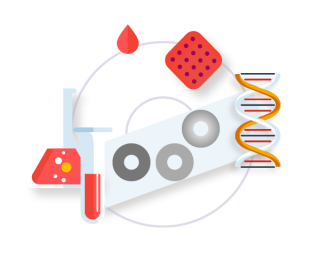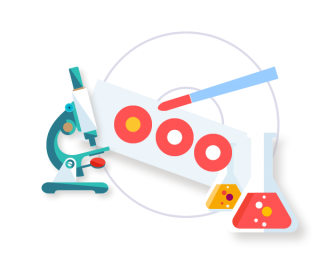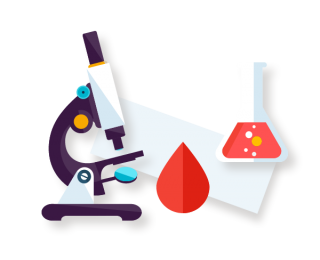3 Easy Steps
to order your Blood Tests
- Order your tests & print your pathology request
- Visit a Collection Center near you.
No extra fees of any sort - Results by email & SMS to you within approx 24-48 hrs. *Rarer tests may be longer
Easy to understand reference ranges for abnormal and normal tests supplied with all results
Abnormal results are reviewed by a AHPRA Registered Doctor and if applicable we will assist into appropriate medical care.
No extra charges or Lab fees
NATA accredited pathology. Australia wide
We are a direct access testing program using trusted NATA accredited Laboratories.
No Medicare card needed
No GP consult or referral required
No test refused
No Medicare - no linking of patient data
Iron Studies and Heavy Metals Blood Testing for Men & Women
Safe & confidential. NATA accredited.
Iron: The serum iron test measures how much iron is in your serum. Serum is the liquid that is left over from your blood plasma when the red blood cells and the clotting elements have been removed. Iron studies (Fe) are a group of blood tests that measure and estimate the amount of elemental iron carried in the blood and stored in the body tissues. Iron is an essential component of haemoglobin (hb), (hb carries oxygen around the body), and iron deficiency is a common cause of anaemia (low blood count).
Transferrin is the main protein in the blood and binds to Iron to transport throughout the body.
Ferritin: The Ferritin blood test measures the level of ferritin in the blood serum and is used to diagnose anaemia or iron-overload.
1,25 Dihydroxy Vit D:
Two forms of vitamin D can be measured in the blood, vitamin D3 (25-hydroxyvitamin D) and 1,25-dihydroxyvitamin D. The vitamin D3 is the major form found in the blood and is the relatively inactive precursor to the active hormone, 1,25-dihydroxyvitamin D. Because of its long half-life and higher concentration, vit D3 is commonly measured to assess and monitor vitamin D status in individuals.
People at higher risk of deficiency include the elderly or obese people, people who don't get enough sun exposure, people with darker skin, and people who take certain medications for long periods of time. Adequate sun exposure is typically estimated to be two periods per week of 5-20 minutes. People who do not have adequate sun exposure may obtain the vitamin D that they need from food sources or supplements
Red cell Magnesium:
A RBC Mg test can provide an earlier indicator of Magnesium deficiency that a standard Magnesium blood test. When levels are low, the body will pull Magnesium from the cells to keep blood levels normal. In this case a Serum Magnesium blood test may show normal levels while a Magnesium RBC test will give a more accurate result.
Zinc:
Zinc is an important mineral required for a number of bodily functions involving energy and metabolism. Zinc is necessary for a strong immune system, normal growth, cell reproduction and the healing of wounds. Zinc deficiency can be due to lack of proper dietary intake or an excess of minerals such as copper or iron which block the body's ability to properly absorb zinc.
Copper:
Copper is an essential mineral that the body incorporates into enzymes. These enzymes play a role in the regulation of iron metabolism, formation of connective tissue, energy production at the cellular level, the production of melanin (the pigment that produces skin color), and the function of the nervous system.
Caeruloplasmin:
This test is used to measure how much of a copper-containing protein is in your blood. This test is used to diagnose problems related to copper. These include Wilson disease. Wilson disease is a rare inherited disease that can't be cured. Caeruloplasmin is a protein made in your liver.
Ionised Calcium:
Ionized calcium is calcium in your blood that is not attached to proteins. It is also called free calcium. The Ionised Calcium test may be used to measure the free or unbound amount of calcium in the blood. Calcium is a mineral which is important for healthy functioning of the heart, muscles and nervous system as well as proper bone formation. Calcium which is not bound to albumin is considered free and metabolically active.








 Sport Hormones
Sport Hormones Hormones General
Hormones General Thyroid
Thyroid Check ups
Check ups Metals
Metals STDs
STDs Other Tests
Other Tests Affiliated Medical Clinic Panels
Affiliated Medical Clinic Panels Build your own
Build your own